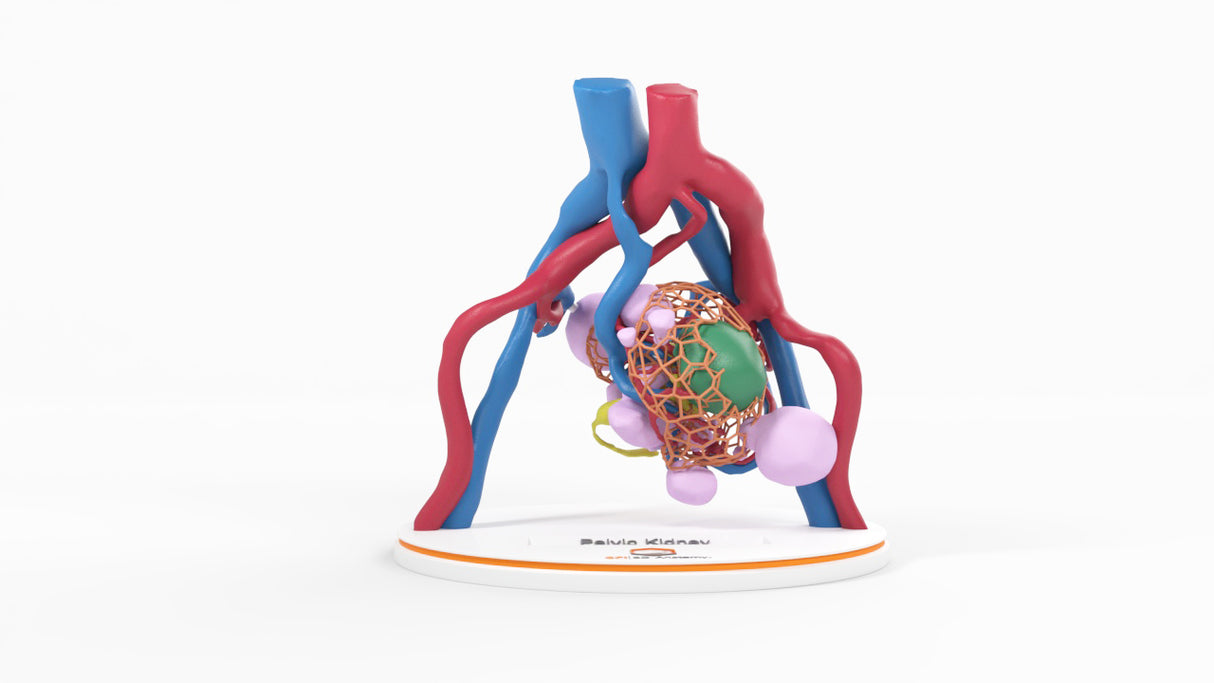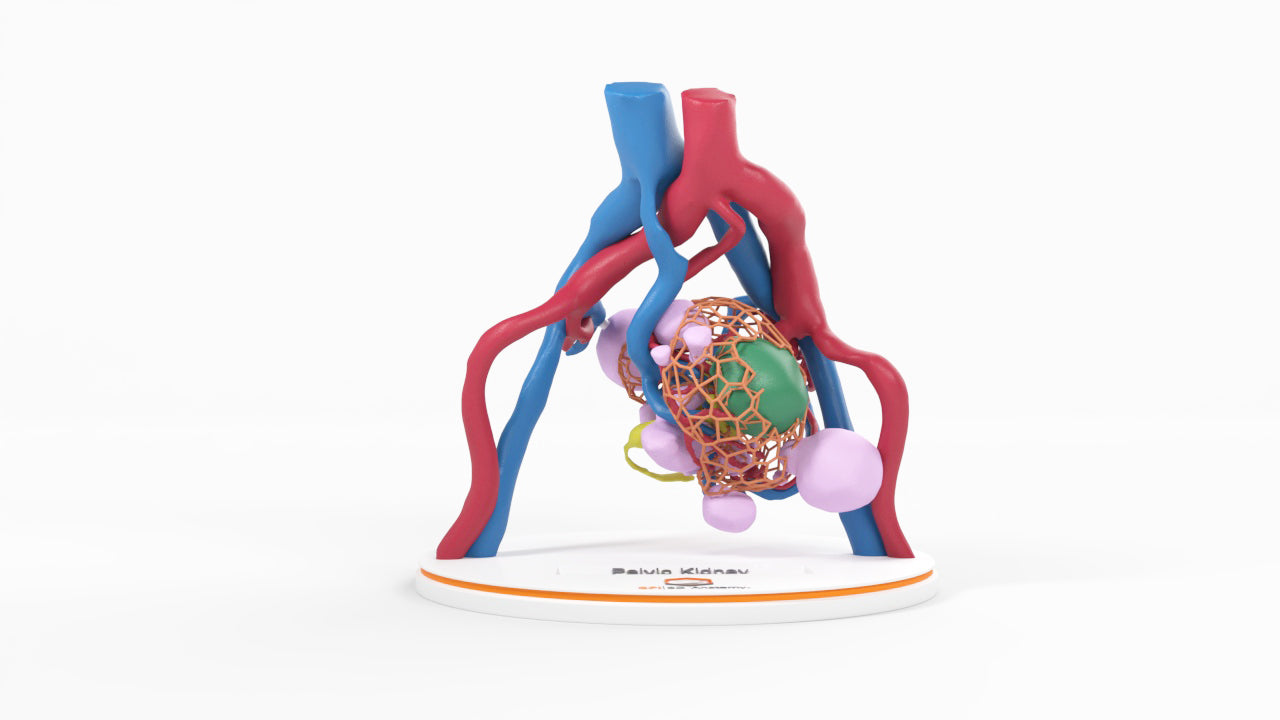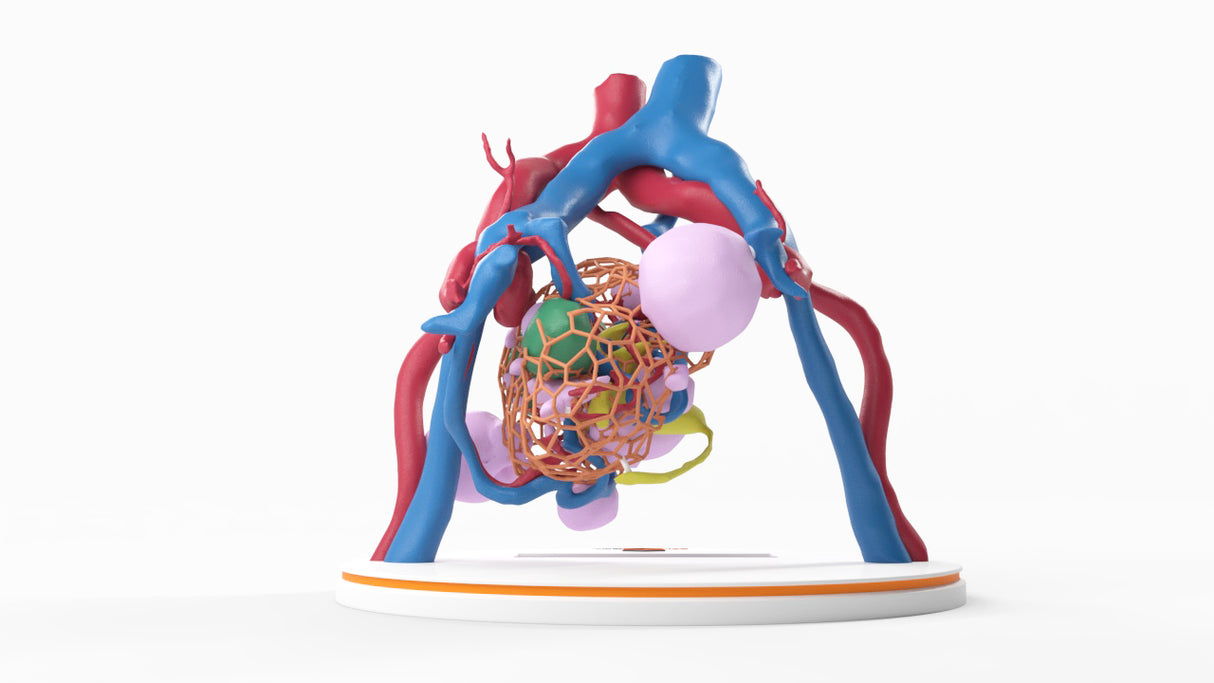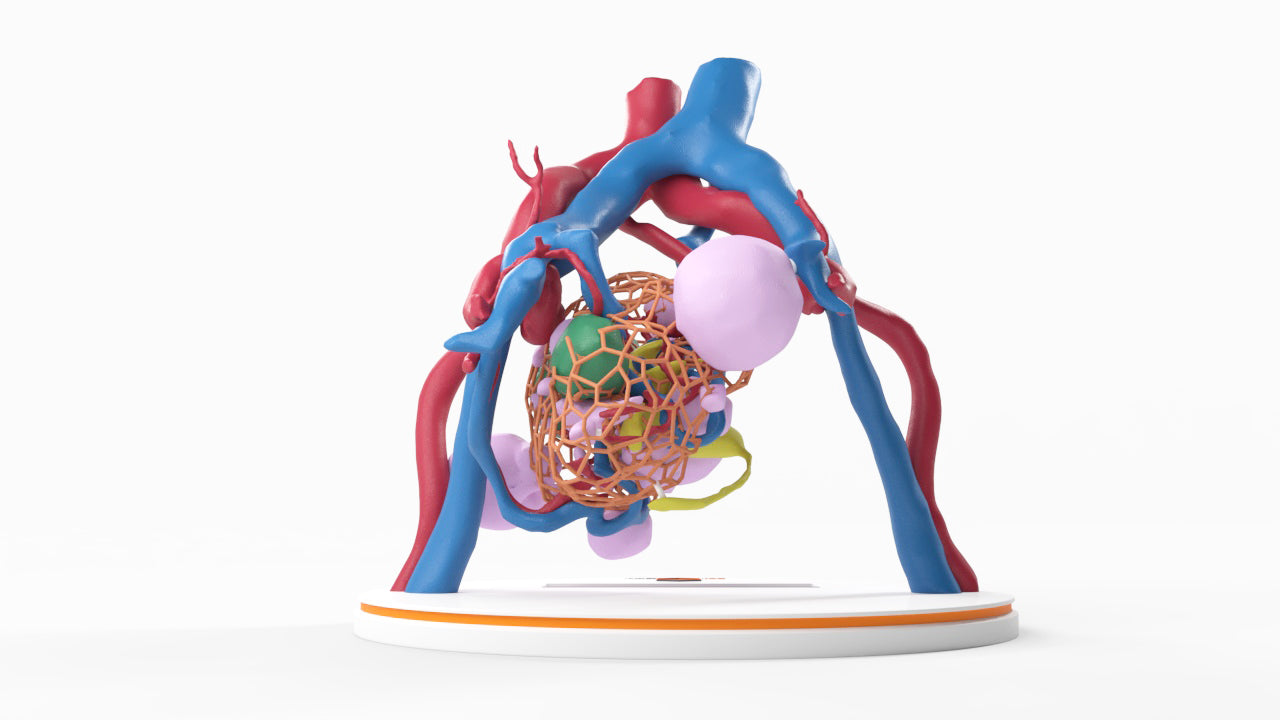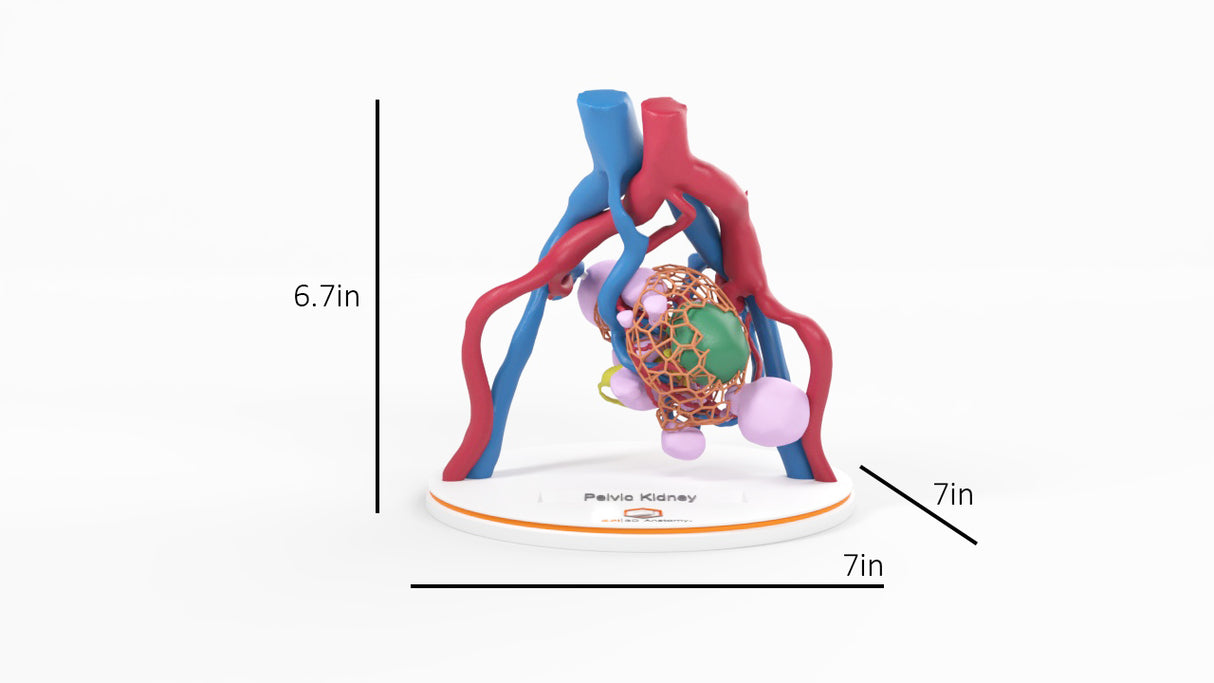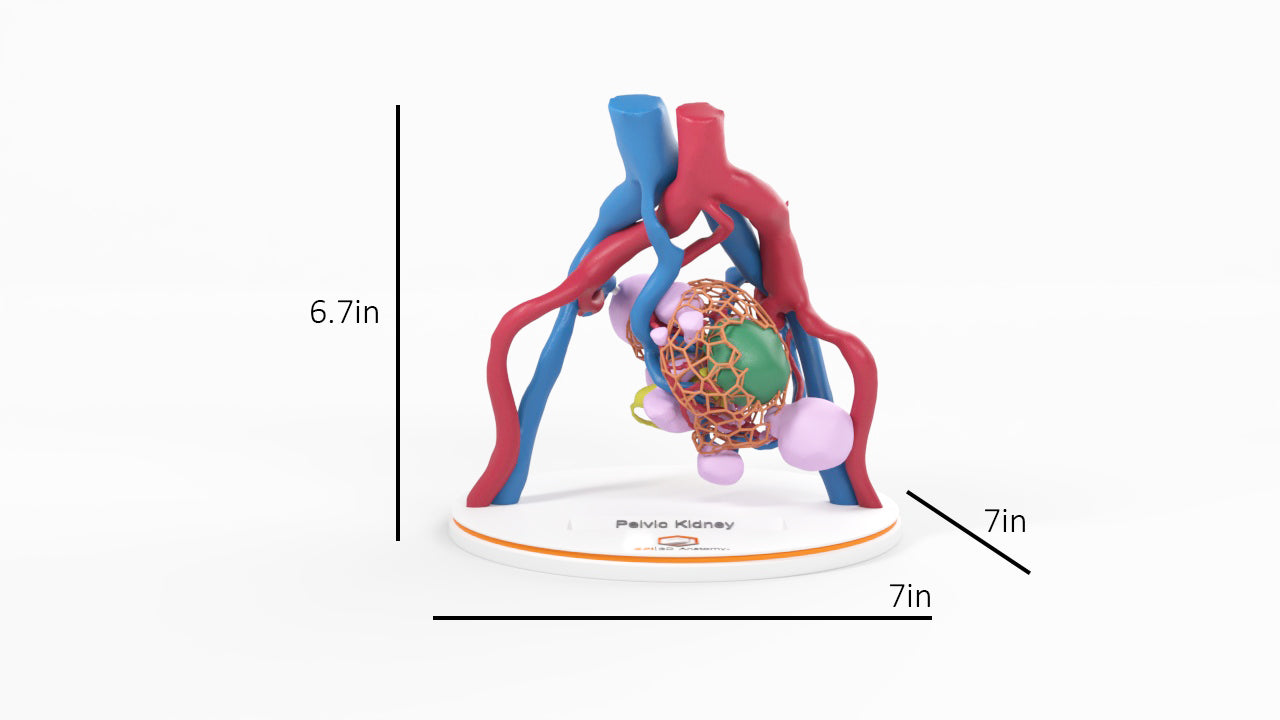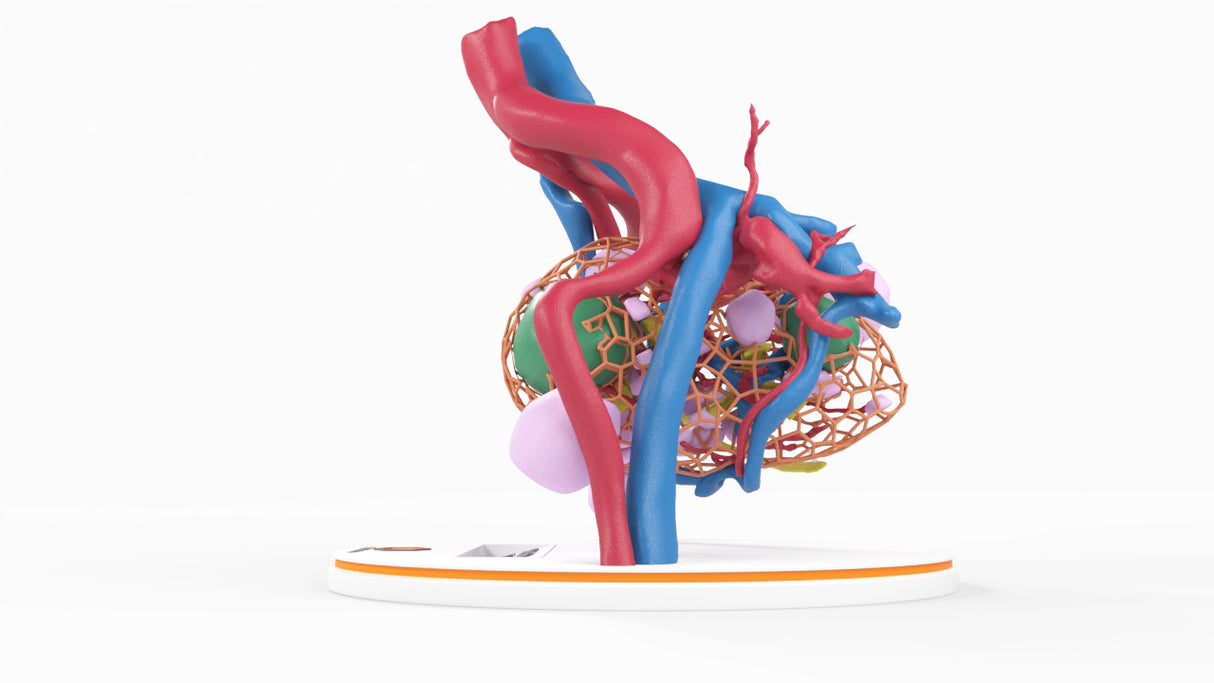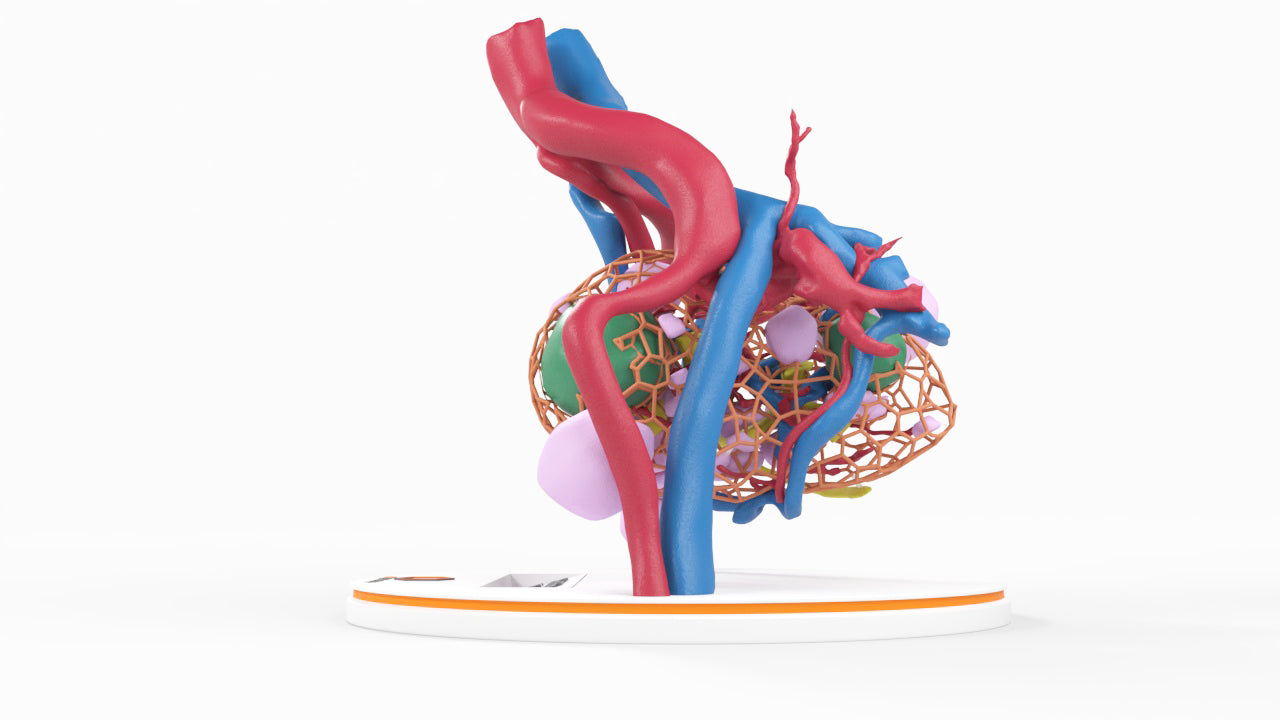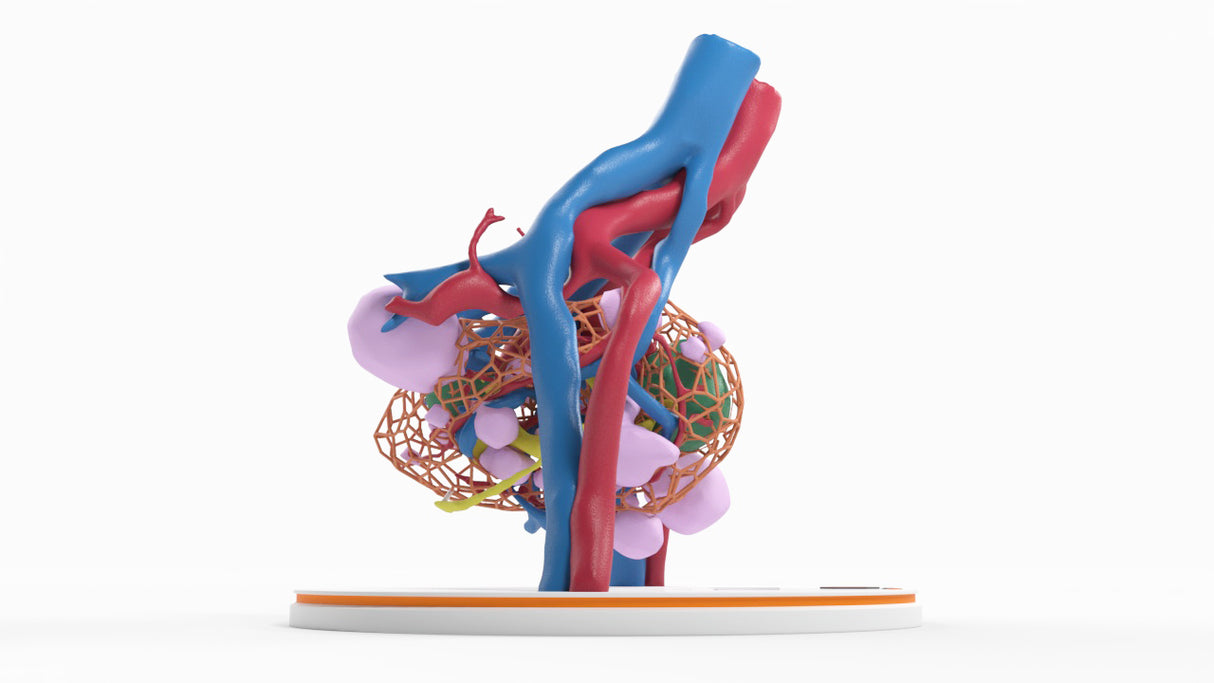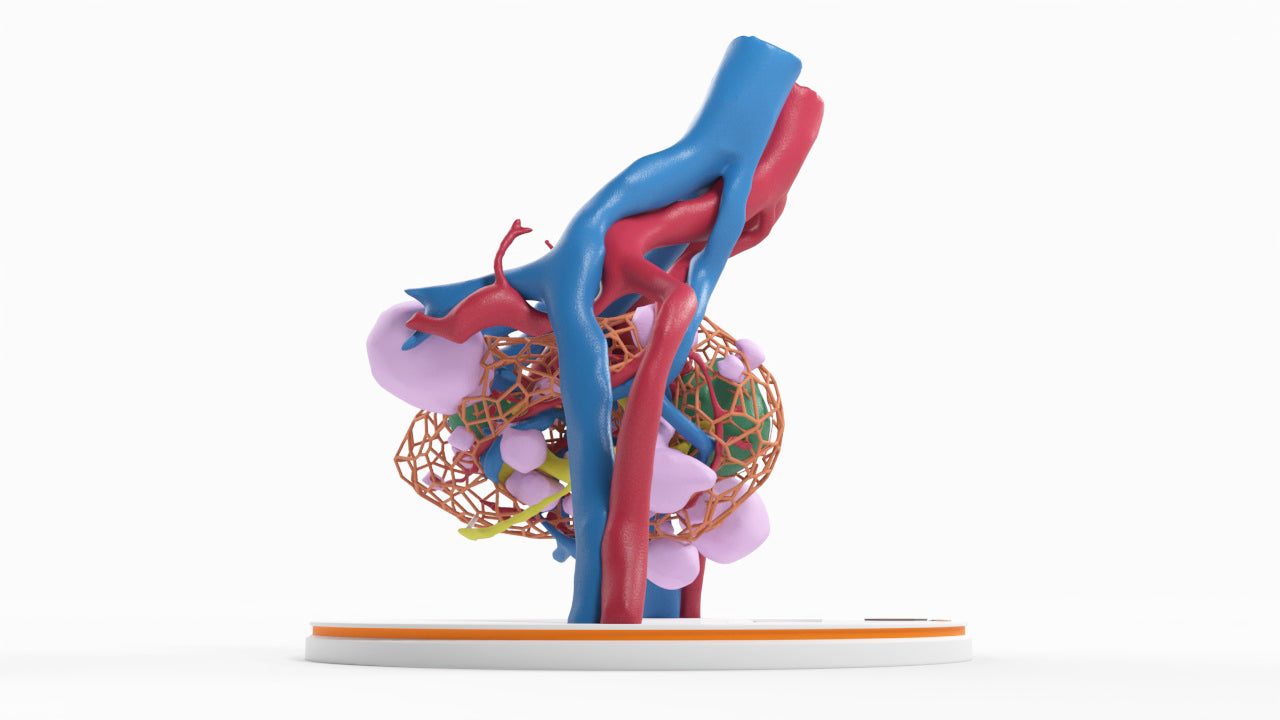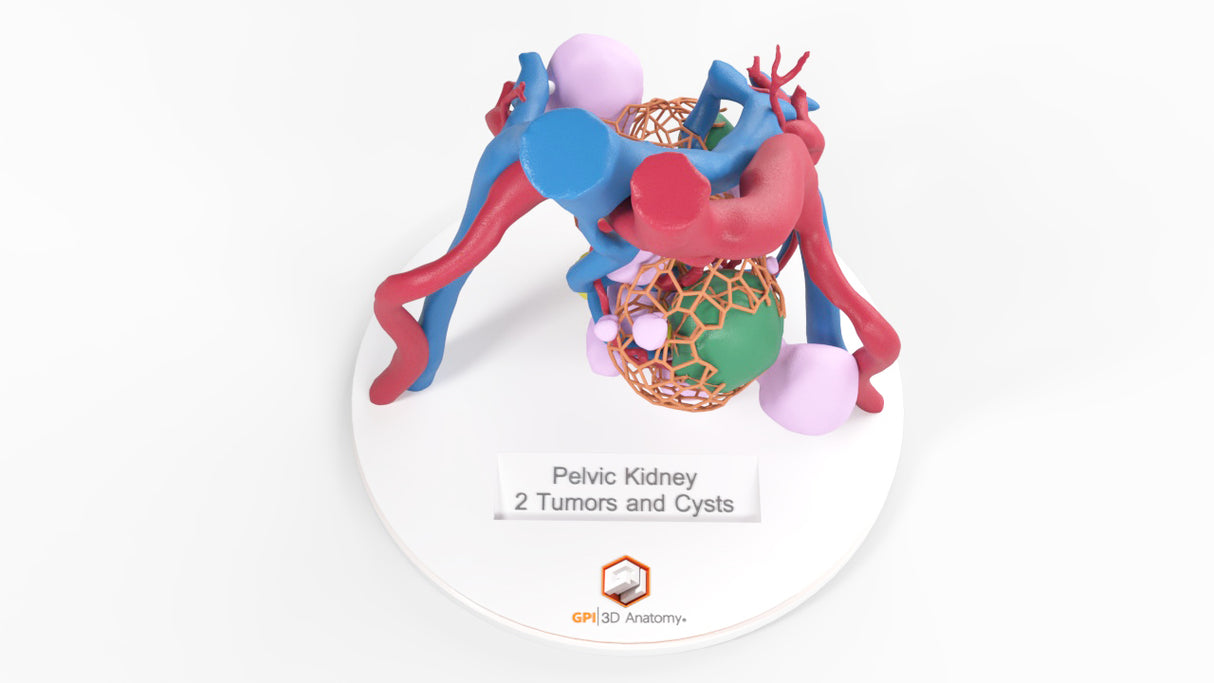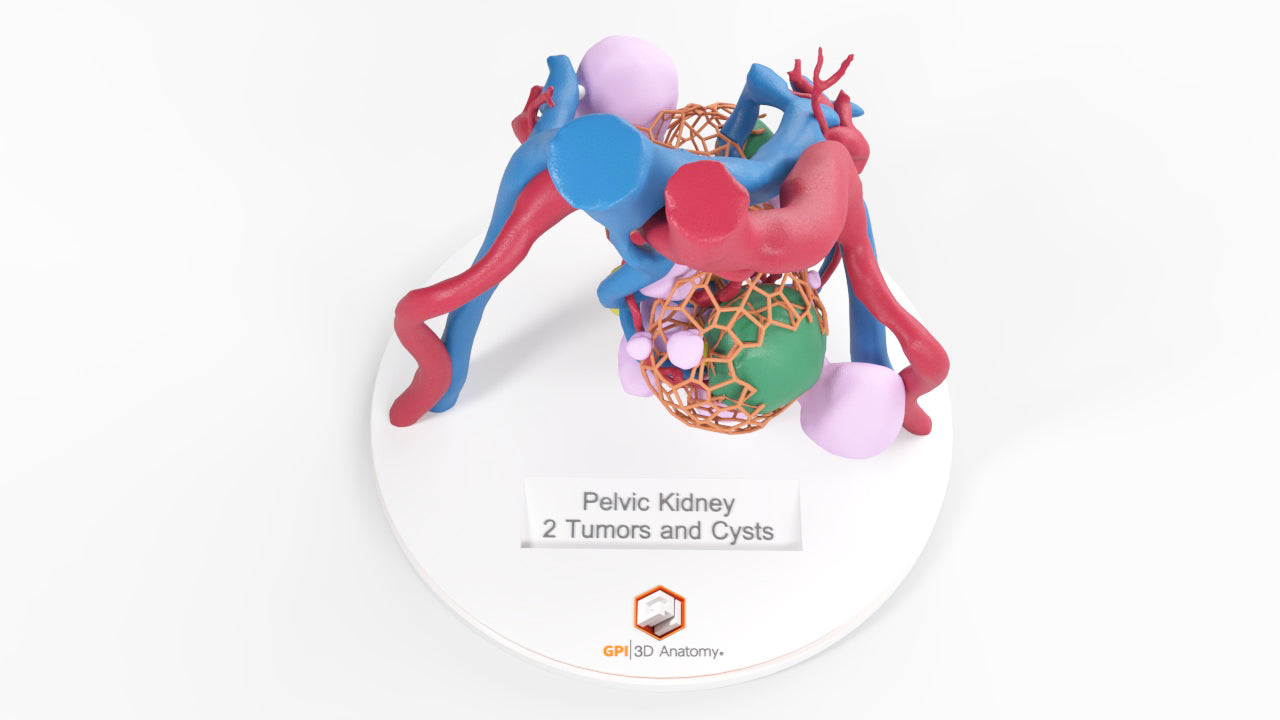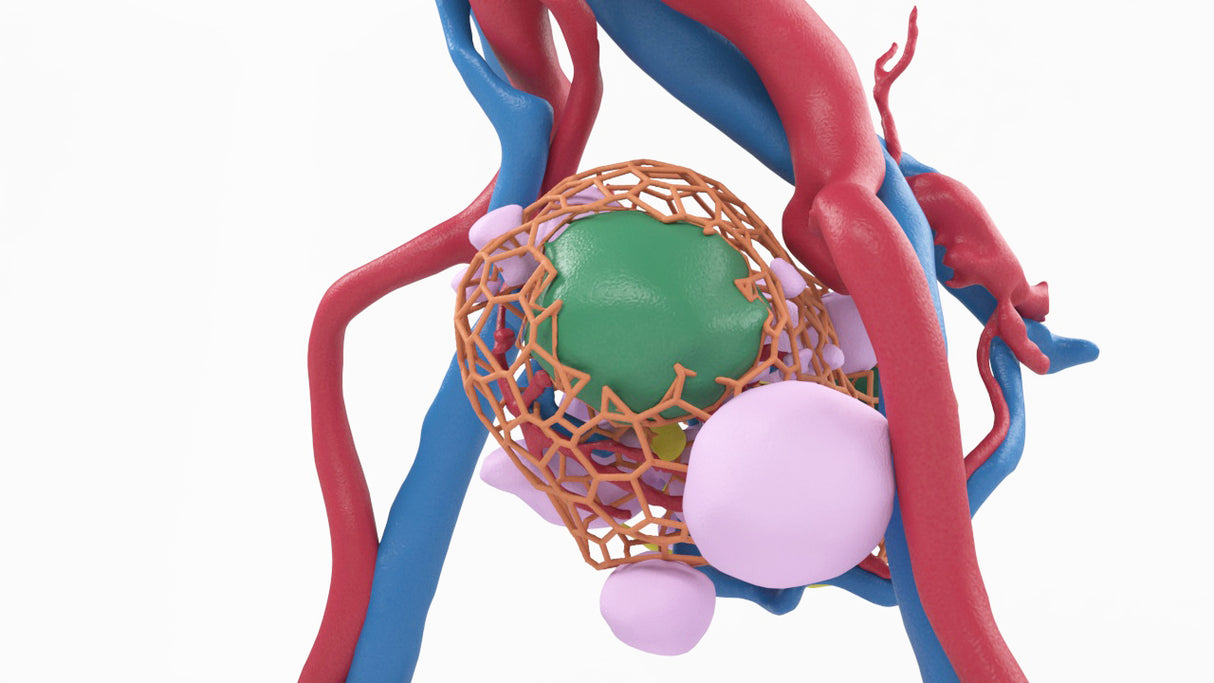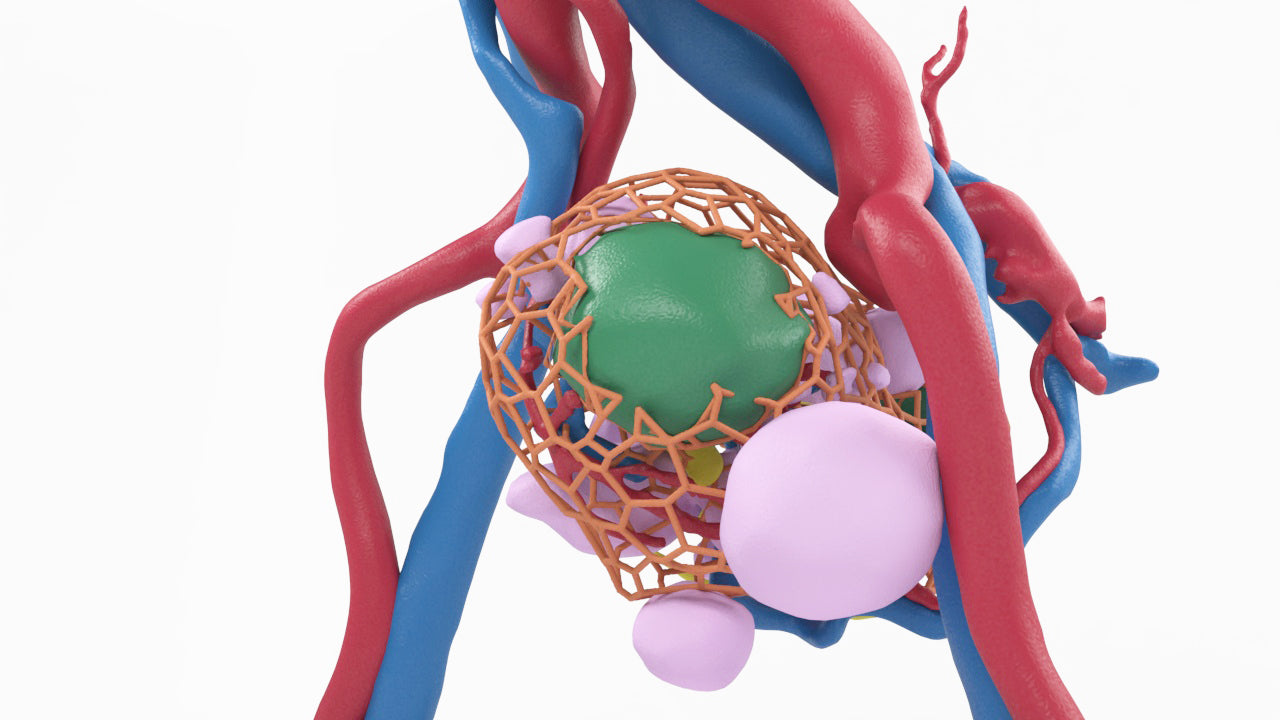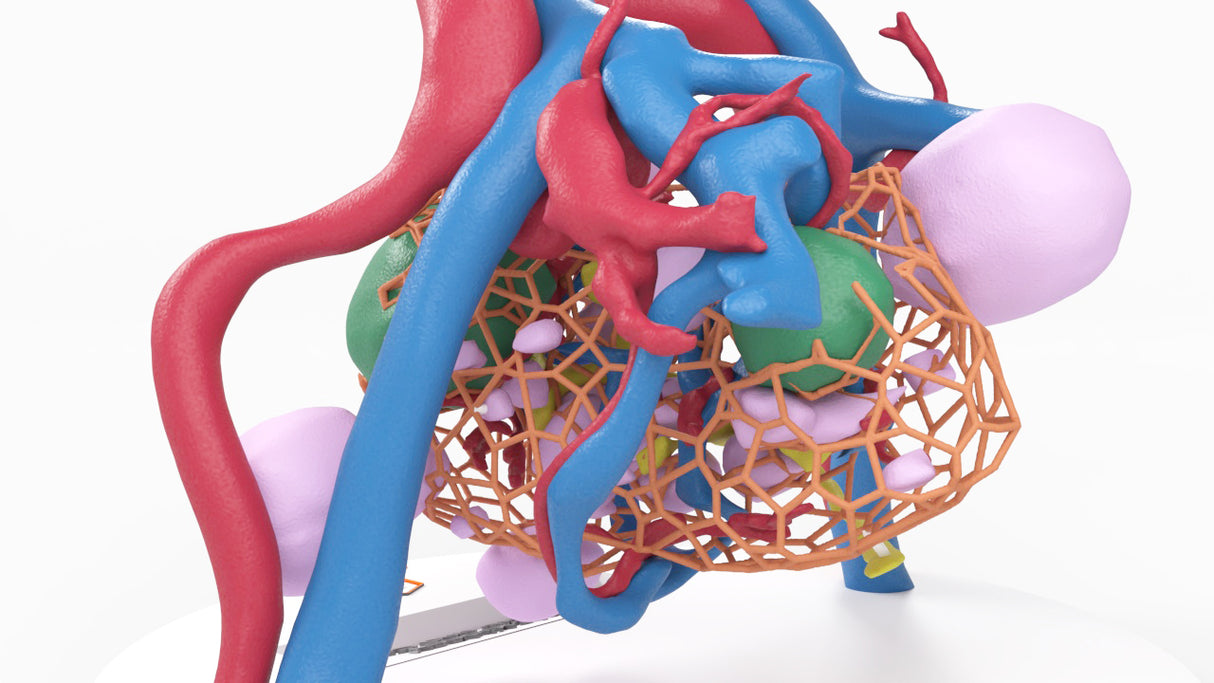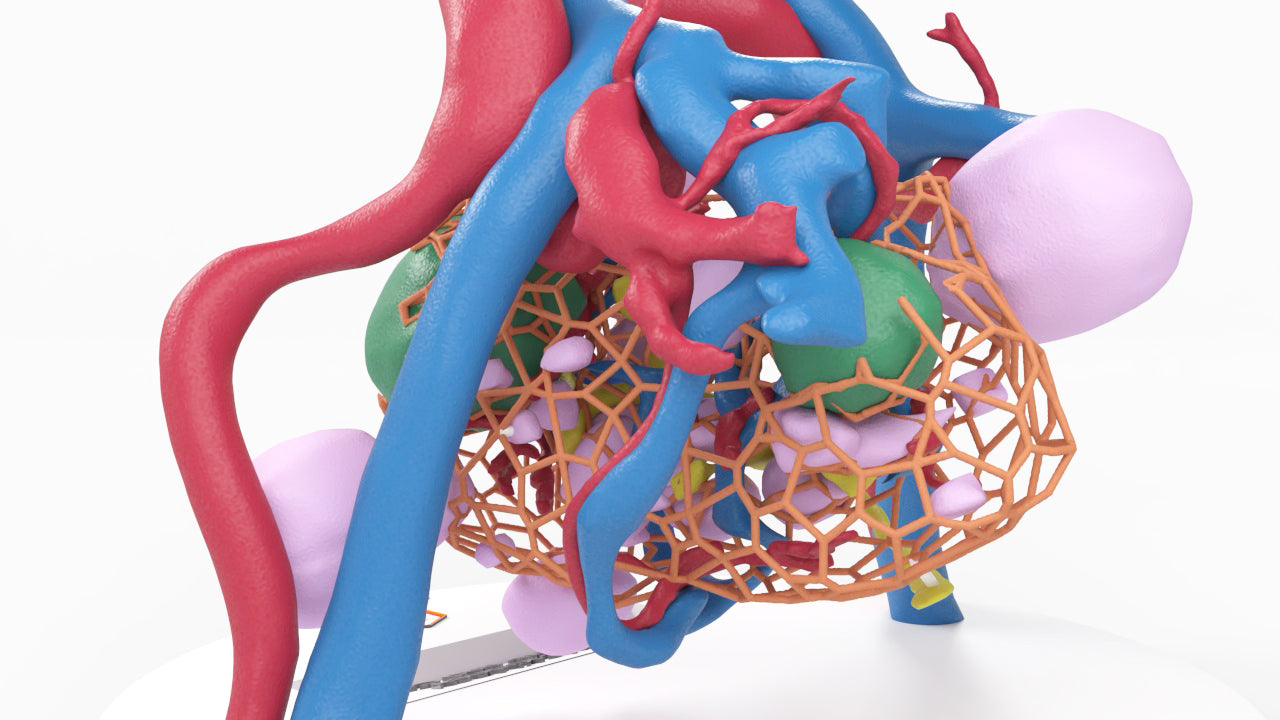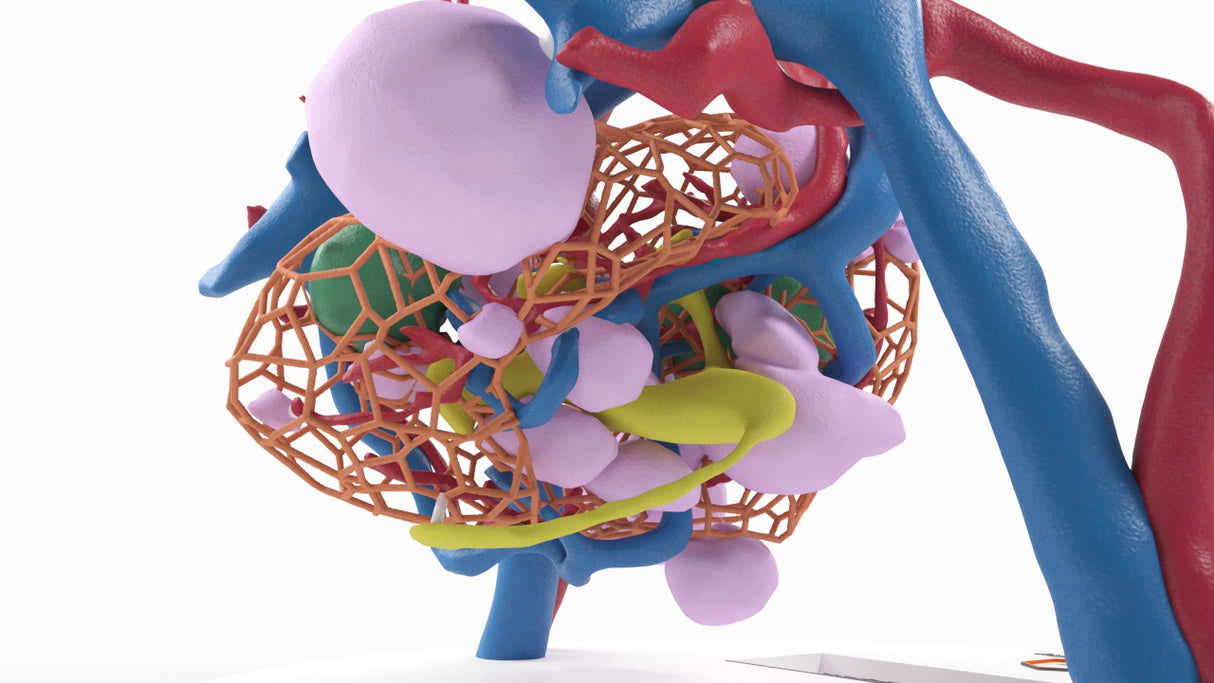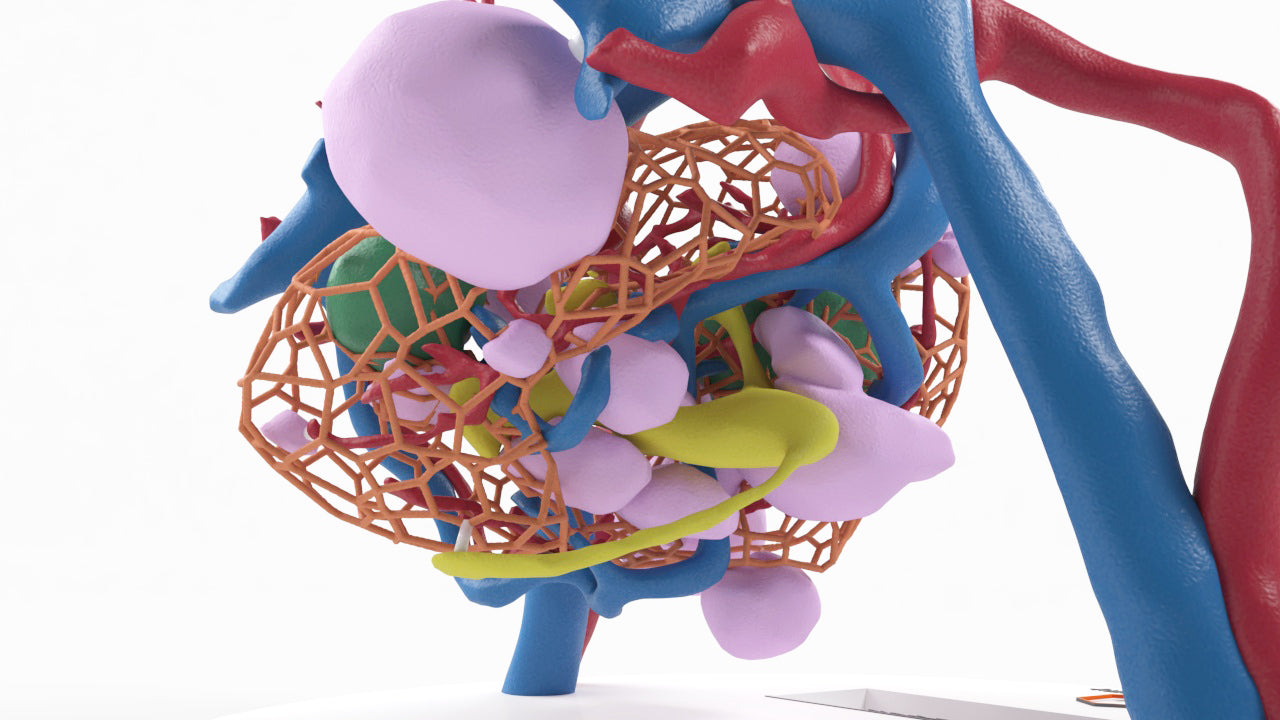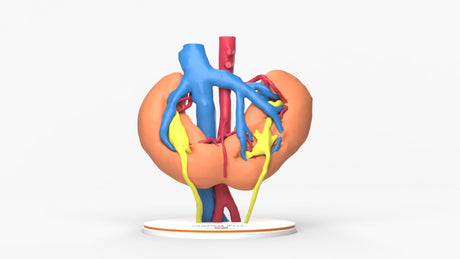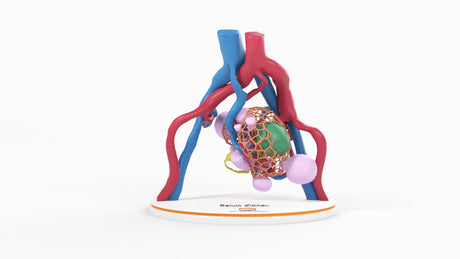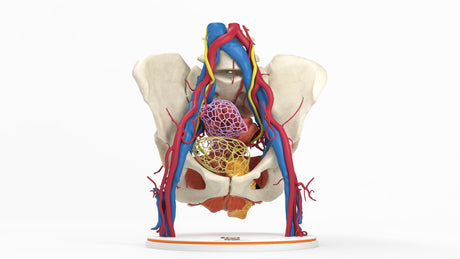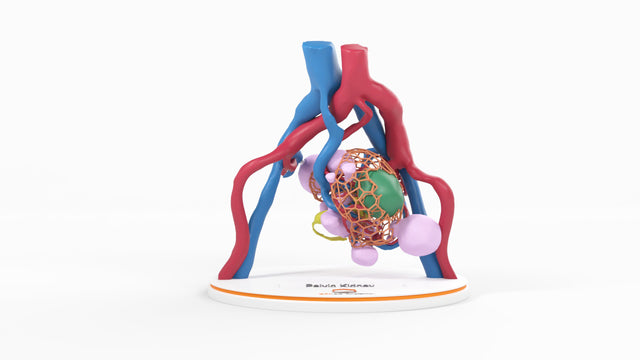Lattice Pelvic Kidney With Neoplasm and Cysts - Male, 78 Years
Couldn't load pickup availability
The model was created from a multiphase abdominal and pelvic CT protocol including CT angiogram, Corticomedullary phase CT, CT Venogram, and delayed CT Urogram. Model depicts the renal parenchyma as a lattice structure to reveal the inner anatomy including detailed renal artery and renal vein branches, urinary collecting systems, ureter, multiple kidney cysts (purple), and their relationship to the kidney cancer (green).
Designed using MRI and CT imaging scans and the latest 3D printing technologies, in collaboration with Mayo Clinic.
Dimensions & Features
About the Condition
Benefits of 3D Printing
3D-printed anatomy models offer a variety of advantages for surgical planning, patient education and medical research, including:
∙ Greater accuracy and detail than traditional anatomical models. 3D-printed models are created from digital scans of a patient's anatomy, which ensures that they are as close as possible to an exact replica of real human anatomy.
∙ More versatility than traditional anatomical models. 3D-printed models can be customized to meet your specific needs, whether planning a complex surgical procedure, training with real patient data or facilitating personalized patient communication.
Not limited to standard manufacturing, 3DP provides the best opportunity to produce accurate models in natural organic shapes, sizes, and colors; creating the best representation of real human anatomy.

